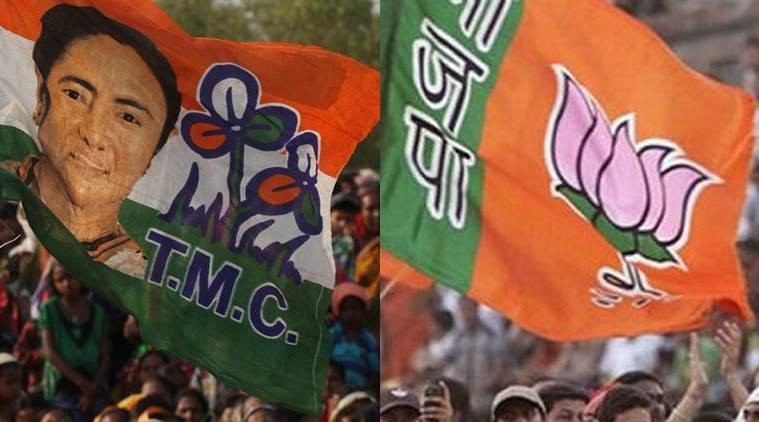
When Home Minister Amit Shah reiterated in the Rajya Sabha his desire to implement the National Register of Citizens (NRC) across the country to weed out illegal immigrants, several cadres in the Bharatiya Janata Party (BJP) rejoiced. But for a section of the minority community living in India, it sent shivers down their spine.
The minorities in question are the Muslims in West Bengal - the roughly 24.6 million people who make up 27 per cent of the state's total population. But why are Bengali Muslims, especially in the districts bordering Bangladesh, intimidated by the NRC?
In a nondescript hamlet of Nadia district, almost eight kilometers from Karimpur, Rojina Islam lives with her husband. The 64-year-old homemaker echoes the concerns of other villagers in the area.
"What if the BJP government comes hounding us? We are poor people. We can't do anything if they label us Bangladeshi. My forefathers were born on this soil, we are Indians," she asserts.
But then for every Rojina, there is a Rakhi Bibi, who admits that she got to India thanks to the porous borders.
"We moved from Bangladesh after the partition. But now we are Indian citizens. We have a ration card and we are safe in this city till Mamata Banerjee is in power. I'm not sure if we'll be safe under a BJP government in Bengal," Rakhi says.
Miles of unmanned borders in the districts of Malda, Murshidabad and Uttar Dinajpur have indeed helped Bangladeshis like her find their way into Indian land.
Not only do people pass through the porous borders easily, but the routes have also become a gateway for smuggling and human trafficking. Even livestock are transported through these borders.
This has meant that the NRC card isn't just empty rhetoric, but in fact a nerve-jangling prospect for many.
Originally introduced in 1951 by the then Prime Minister Jawaharlal Nehru, the NRC is a register of authentic Indian citizens. However, in 2018, the Modi government decided to update the list in Assam, where there has been a long-standing problem of illegal immigrants. Ergo, the Assam NRC was re-born, putting a lot of lives on the brink of homelessness.
In the final draft, the NRC left out 40 lakh people in the state, most of them Bengali Muslims. Their children, born after 2003, will not be eligible to become Indian citizens.
The BJP's implementation of the NRC in Assam came after they had taken charge overthrowing the three-time chief minister Tarun Gogoi by riding on the anti-immigrant sentiment. Following their success in the north-eastern state, the BJP, during the recently conducted Lok Sabha elections, raked up the possibility of implementing the NRC in Bengal too.
"If voted to power in Bengal, then we will implement the NRC in the state. We will not tolerate any illegal immigrants in Bengal," state BJP president Dilip Ghosh had said prior to the elections in April. In the elections, the saffron party, won 18 out of the 42 Lok Sabha seats in Bengal - a historic first.
The right-wing party known for their anti-minority sentiment has been gambling with the Hindu mindset in Bengal, successfully provoking in them the fear of Muslims changing Bengal's demography. Shah, in one of his scathing attacks against the Bengal government, maintained that Hindus from Bangladesh will be untouched.
The alienation of the BJP from the Muslims is in fact complete. The party, which was once interested in expanding its cadre base in Muslim-dominated areas through a drive initiated by Rahul Sinha, made no such attempt this time around.
Consequently, those like Subir Ali (58), a vegetable vendor in Kolkata, are a worried lot. "Who knows what will happen if BJP comes to power in 2021. We know what is happening in Assam and how Bengalis are being targeted. Where will we go if they are hellbent on proving us to be illegal immigrants," he questions.
Ali's quivering lips, when he spoke of the NRC, were perhaps enough to betray his resentment against the BJP. But after the 2019 Lok Sabha Elections, even he, for all his resentment, doesn't rule out the possibility of the saffron party overthrowing the Mamata government in the next assembly elections.
This rivalry from the BJP is the fiercest opposition Chief Minister Mamata Banerjee has faced in the eight years of her rule in West Bengal. Training her guns on the BJP, Mamata made it clear that she won't allow the NRC in her state and proclaimed that Narendra Modi was no one to decide who gets to stay in the state and who doesn't.
Such is her opposition to the NRC that during the drafting of it in neighbouring Assam, she maintained the state's doors will be open for all those who are left out.
The BJP, now the second-largest party in the West Bengal after the abject performance of the Left and the Congress, has used every opportunity to accuse the Chief Minister of shielding the illegal immigrants to safeguard her vote bank.
The BJP view on illegal immigrants is echoed significantly by CPM leader Mohammad Selim who said that Bangladeshis had come across in hordes in the last decade and settled on Indian soil with forged documents.
As this political whataboutery continues, lakhs are left pondering their future. All that can be said for certain is that NRC has certainly begun enveloping Bengal. Where it all lead to is anybody's guess.NRC


.jpeg)

